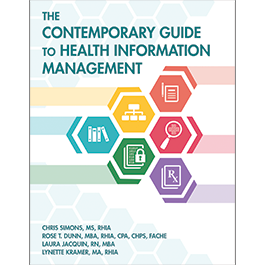Summer reading: Tips for appealing denied claims

Information Management
by Chris Simons, MS, RHIA
There are many ways to fight a claim denial, but the first step is to decide to appeal. That’s why it’s important to have a dedicated denials management division and a denials management steering committee to provide oversight (as described in the July 12 post on the ACDIS Blog). Obviously, mistakes happen, so when a claim is denied a team of clinical and coding experts working on behalf of the facility needs to review the denials and determine whether they represent a legitimate mistake, a pattern of erroneous activities, a challenge of facility systematics (i.e., a technological or process-based problem), or an appeal opportunity.
The denials management team needs to determine the type of denial and accurately classify it as either due to potential coding concern, clinical validation (medical record documentation), or medical necessity (whether this claim meets the requirements set in insurer’s contract with the facility). The team can then involve the appropriate staff/department team leaders or steering committee contacts to delve into the facts of the case and determine the best course of action should an appeal be warranted.
Some CDI programs actively participate on their denials management teams and steering committees. Some CDI professionals have advanced their careers by moving into a denials management role. Having someone knowledgeable about basic documentation relative to code assignment can help hasten the process.
Additionally, denials management teams should include the physician of record in the appeal writing process as needed particularly when clinical concerns arise. Often, too, the CDI department physician advisor may prove a useful asset to the denials management team or steering committee to help the group determine when and how to effectively approach a treating physician and how to leverage a denial as a teaching tool to further CDI efforts and improve documentation.
It may go without saying but denials management teams need to have effective tracking efforts in place to manage appeal deadlines. Different payers’ contracts may stipulate different timelines and just missing a deadline may make an appeal unsuccessful. Also be sure to use certified mail for those payers with poor track records as well as any high-dollar claim denials.
In general, those on the denials management team should have good writing and critical-thinking skills in order to draft an appeal letter that is clear and concise with a logical, easy-to-follow argument in support of the appeal. Attach only pertinent documentation. Don’t attached an entire medical record and expect the payer to weed through it.
Editor’s note: This article was adapted from the book The Contemporary Guide to Health Information Management.
